Radiochemistry
Development of radiochemical process technology
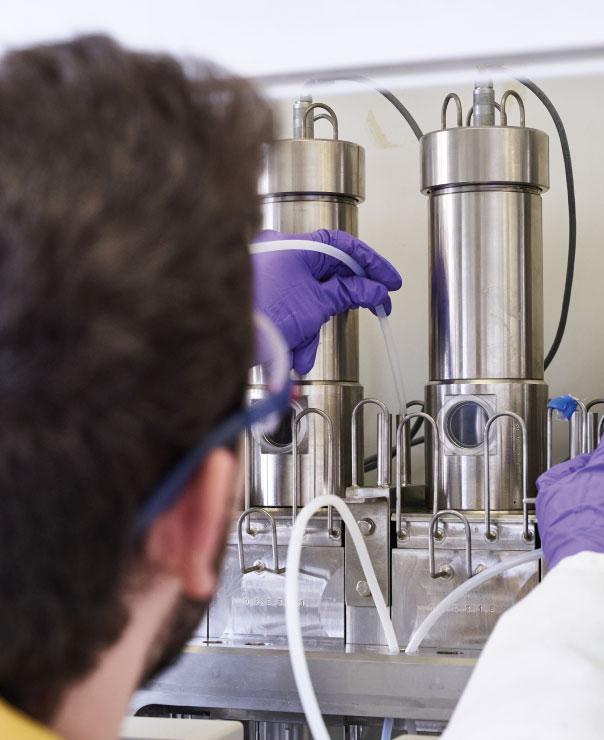
An answer to societal challenges
Radiochemistry covers the chemistry of radioactive substances. Scientists study chemical processes on irradiated and natural radioactive materials in order to apply these processes in the chemical and medical sector afterwards.
In the medical sector, for example, radiochemistry is used to produce medical radioisotopes and radiopharmaceuticals that are indispensable in the battle against cancer. They are used worldwide to detect cancers, treat cancers, and closely monitor how the treatment is evolving.
At present, there is still no final solution for the management of our highly radioactive waste. Again, new radiochemical processes can provide solutions to a complex challenge our society is facing today.
Separation chemistry as a key competence
Radiochemistry plays a central role in SCK CEN's large-scale projects. In the development of new radiochemical processes, separation chemistry is one of the research centre's key competences. Thanks to separation chemistry, scientists can isolate valuable radioactive products from complex matrices of high purity needed for their application or for their characterisation.
In recent years, SCK CEN has joined forces with leading radiochemical laboratories in Europe. There is also a collaboration with the laboratories of the U.S. Department of Energy (U.S. DOE). This allowed the research centre to further broaden and consolidate its expertise in separation chemistry.
3 research areas
The applications of radiochemistry are broad, but these research areas form the backbone of SCK CEN's radiochemical research.
-
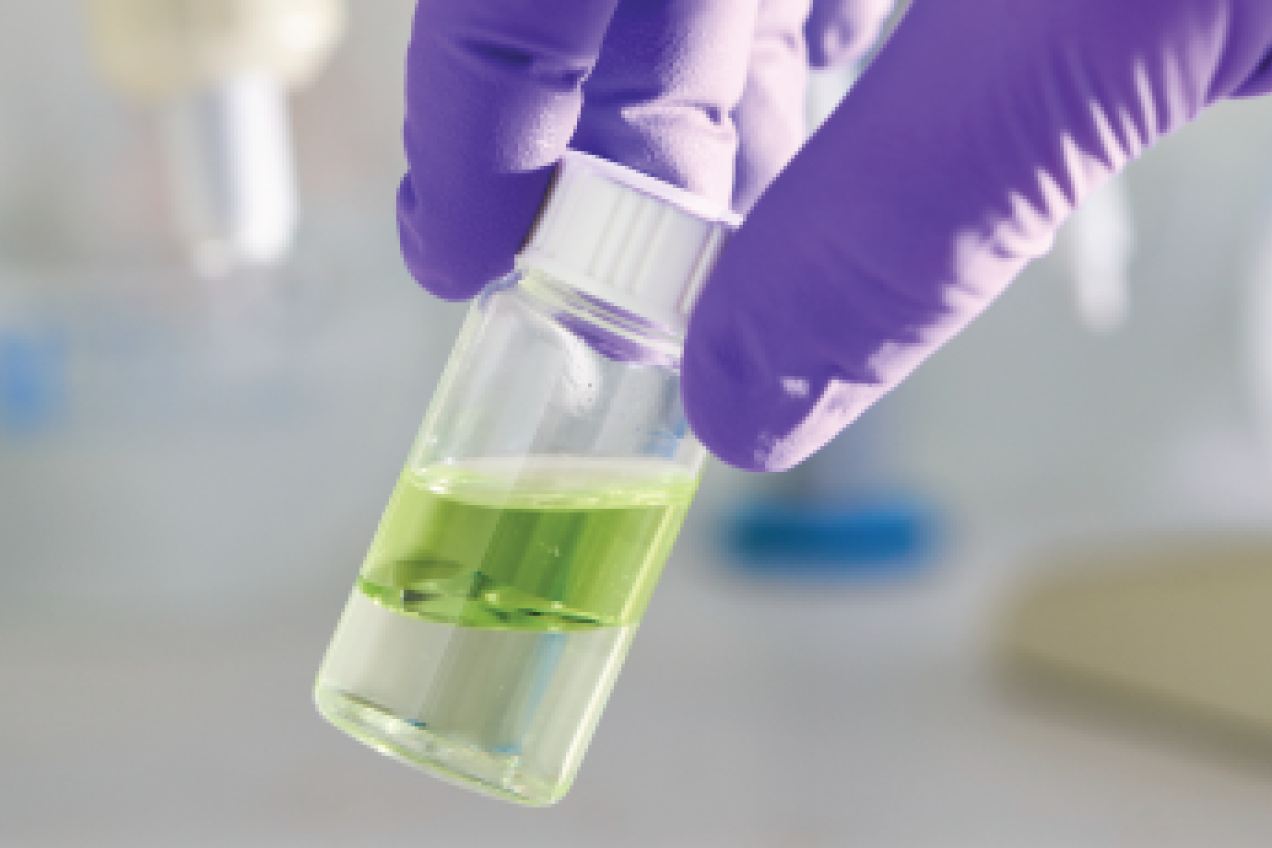
Separating chemical elements in spent nuclear fuels
Belgium is considering geological disposal of its high-level radioactive waste and spent nuclear fuels. In order to reduce the burden and risks for future generations, SCK CEN is studying alternative scenarios. One such alternative scenario is an advanced separation of chemical elements present in the spent nuclear fuels (also called partitioning). By separating those elements into different fractions, each separate fraction can be targeted and treated efficiently.
SCK CEN was already pioneering that research in the 1960s, 1970s and 1980s. Today, SCK CEN is developing innovative separation systems to separate those elements. Several projects are part of this research area: RECUMO, ASOF (funded by the Energy Transition Fund from the FPS Economy), GENIORS (funded by the H2020 Euratom research programme).
💡 Want to know more about our nuclear waste solutions? Read more here.
-
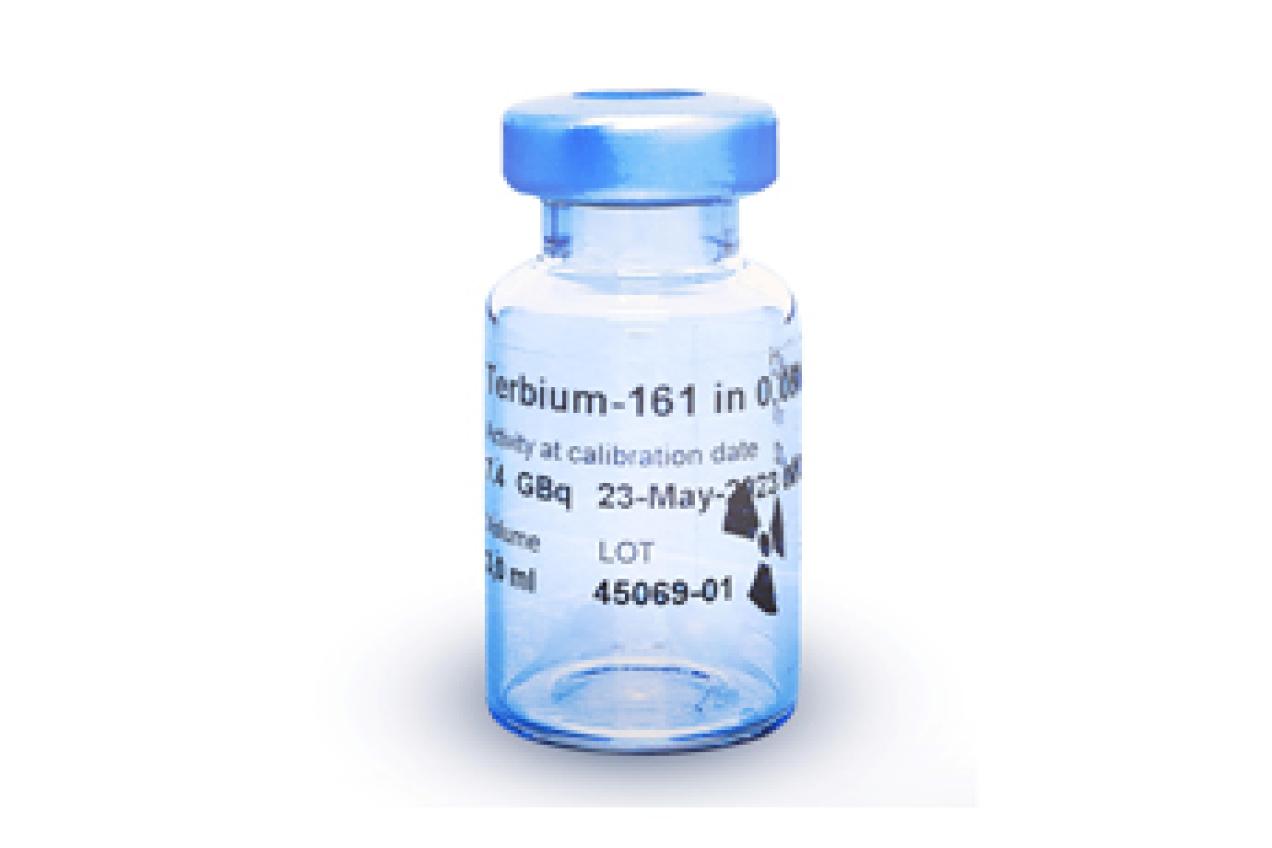
Producing medical radioisotopes
The production of medical radioisotopes goes through several stages. The BR2 research reactor is responsible for the first stage of medical radioisotope production, namely irradiating targets. Afterwards, the irradiated targets are subjected to a chemical process to separate and provide medical radioisotopes to patients. Scientists at SCK CEN are studying how to separate and purify the isotopes through a radiochemical process to produce high-quality products. Those products will be used in medical and pharmaceutical industries.
The scientists are focusing on producing a new generation of medical radioisotopes such as lutetium-177, actinium-225, terbium-161 and tungsten-188. For example, lutetium-177 and actinium-225 show promising results in the treatment of prostate cancer. The BR2 research reactor is responsible for production, but in the future MYRRHA Phase 1 will also play an important role.
💡 Read more about how we produce isotopes.
-
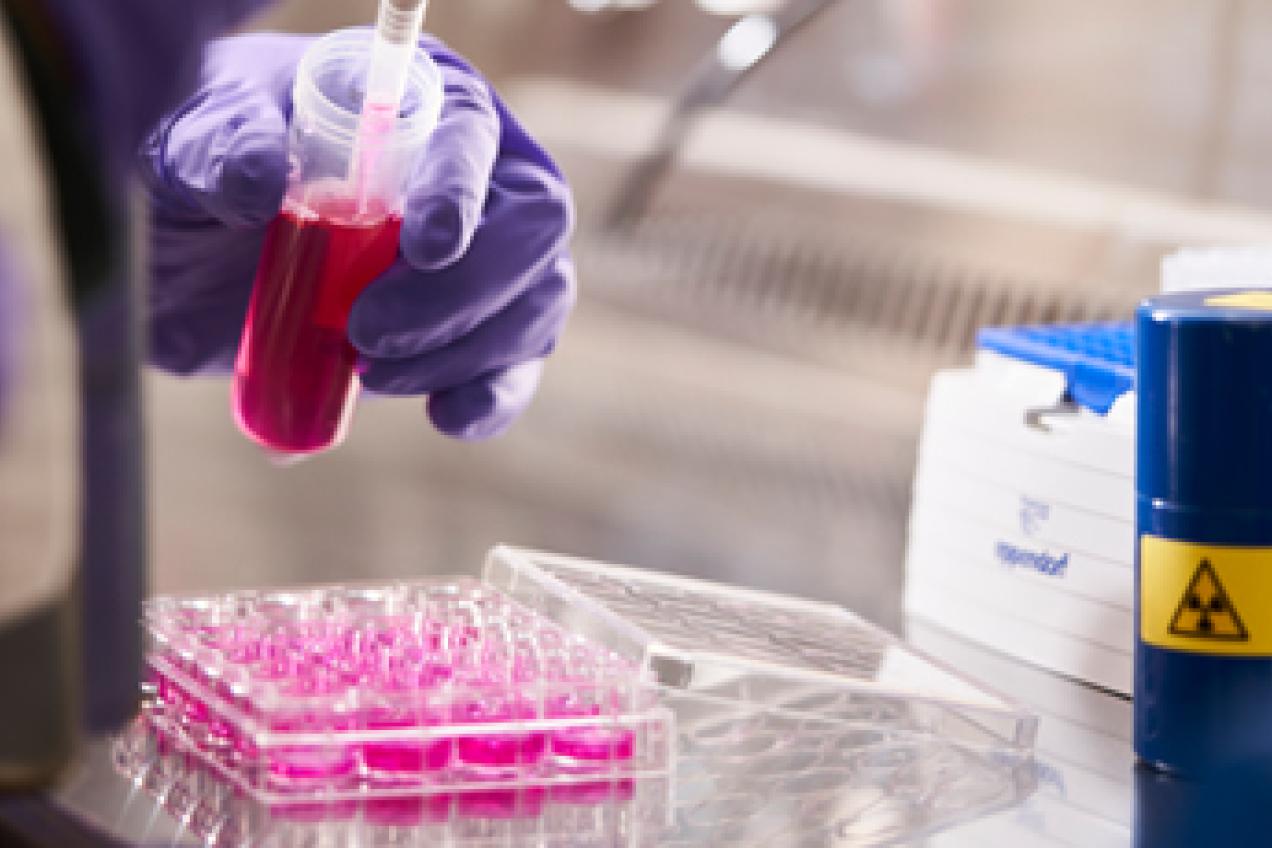
Radiopharmaceutical development
SCK CEN is developing radiopharmaceuticals as part of the programme to battle cancer. Radiopharmaceuticals are medicines that deliver a radioactive isotope to a particular organ via a carrier molecule. As soon as the carrier molecule has attached to the cell, the radioactive isotope will irradiate the cancer cell. SCK CEN is developing radiopharmaceuticals with new medical radioisotopes and is conducting preclinical studies.
Does the carrier molecule bring the radioactive isotope to the organ? How do the radiopharmaceuticals and the cancer cell interact? Do the medicines have the required therapeutic effect? SCK CEN is currently renovating its laboratories to respond to the needs of radiopharmaceutical developments.
💡 Curious about our programme to battle cancer? Read more about it.
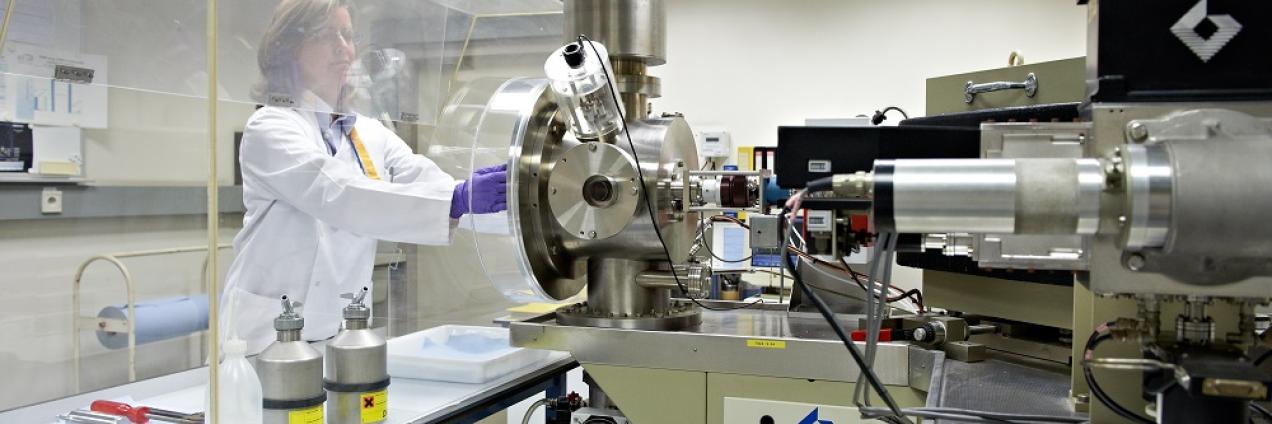
Radiochemical analyses
What is the chemical composition of materials and samples? Which radionuclides are present? What is the purity of the produced medical radioisotopes? Unravelling those questions, evaluating the radiochemical processes and assessing the final products requires an in-depth analysis. We offer numerous radiochemical analyses.
Any questions?
Contact Prof. Dr. Thomas Cardinaels, Head of Radiochemistry at SCK CEN.